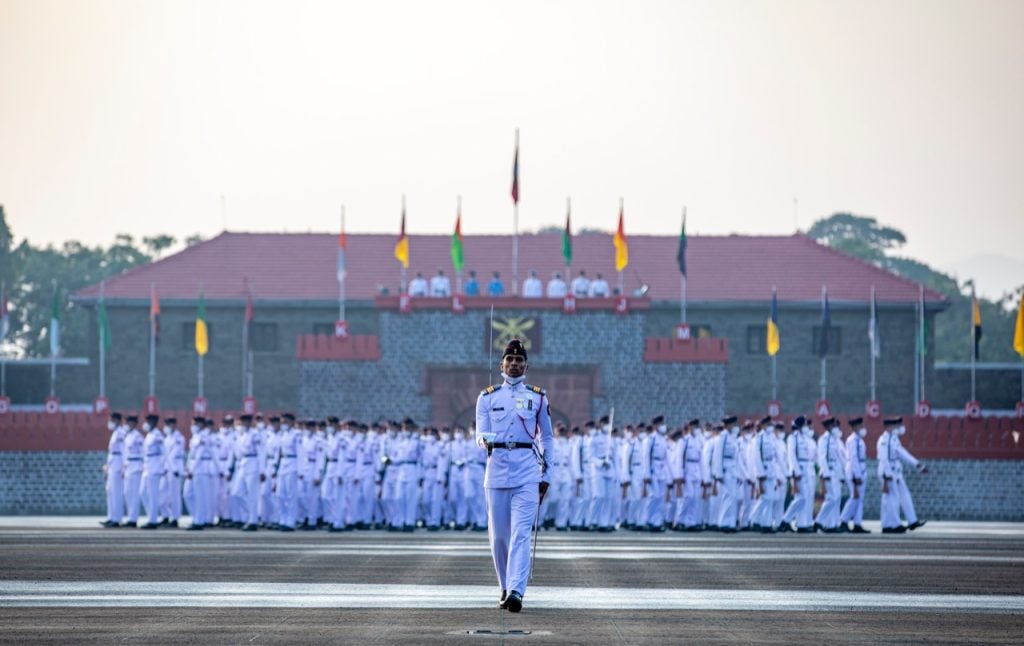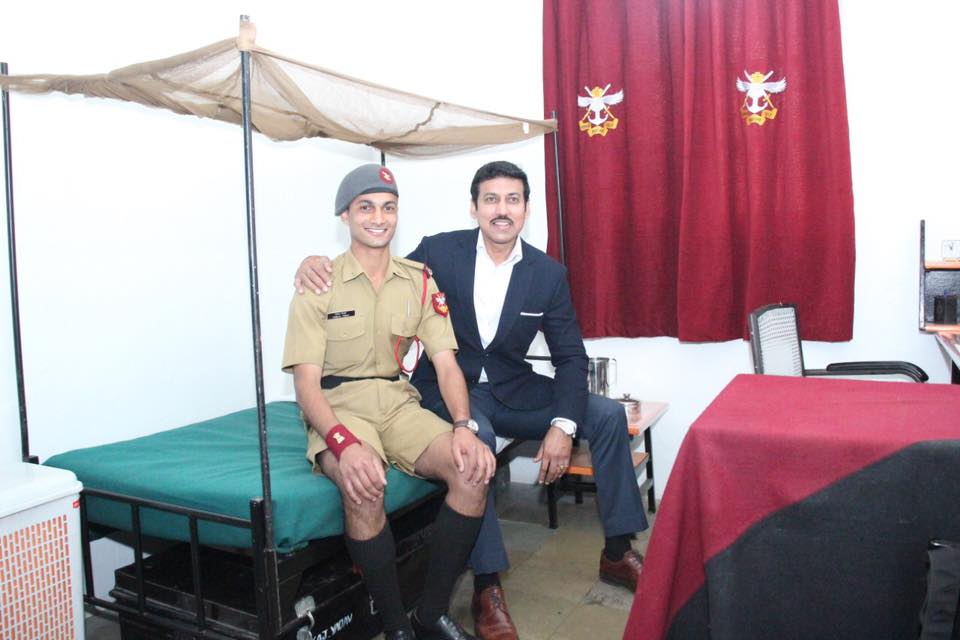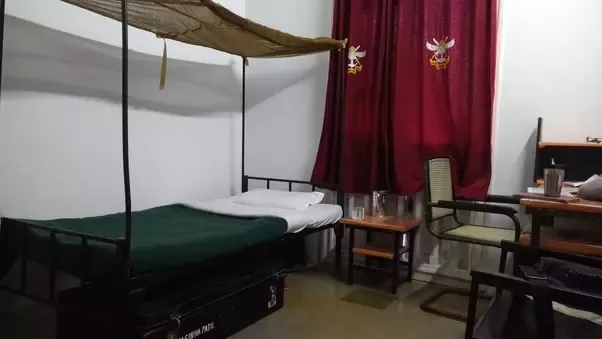Life at the National Defence Academy: Comprehensive Training, Discipline, and Activities for Future Officers

The National Defence Academy (NDA), situated in Khadakwasla near Pune, India, is renowned as the world's first tri-service military academy. It is here that future leaders of the Indian Army, Navy, and Air Force are trained. Established in 1954 following the recommendations of a post-World War II committee led by Field Marshal Claude Auchinleck, the NDA was inspired by prestigious institutions such as the United States Military Academy at West Point.
Spanning a vast 7,015-acre campus, the NDA is dedicated to shaping young cadets with its guiding principle of "Service Before Self," fostering values of honor, discipline, and unity. Over the course of three years, cadets engage in intensive training that integrates academics, physical fitness, and military skills, ultimately earning a bachelor's degree from Jawaharlal Nehru University (JNU).
This narrative delves into the diverse experiences at the NDA, shedding light on the daily routines, rigorous training schedules, unwavering discipline, and lively cadet activities that transform these young individuals into the nation's protectors.

Gaining admission to the NDA is a formidable process, requiring success in the Union Public Service Commission (UPSC) examination followed by the Services Selection Board (SSB) interview. Candidates, typically aged between 16 and 19, enter after completing their 12th-grade education. They are organized into 18 squadrons within five battalions, each consisting of 100-120 cadets.
The squadron system at the academy strengthens a sense of identity, with each squadron boasting a unique nickname, mascot, and historical background, fostering loyalty and camaraderie. New cadets undergo a challenging induction period, known as "ragda," which involves physical trials and acclimatization to military life. While this phase, overseen by senior cadets and instructors, aims to build resilience, concerns have been raised about potential abuse if not properly managed.
The daily routine at the NDA is meticulously structured, starting as early as 4:00 AM and concluding around 10:00 PM, leaving little room for downtime. The day begins with reveille, a wake-up call designed to instill a sense of urgency and efficiency.
Cadets swiftly attend to personal hygiene before engaging in physical training sessions from 5:00 AM to 6:00 AM, which include running, strength-building exercises, rope climbing, and navigating obstacle courses. Breakfast follows, providing essential nutrition to sustain the demanding day.
The morning hours are devoted to drill practices, focusing on marching, parade techniques, and coordination to improve teamwork and precision. Academic classes run from 8:00 AM to 1:00 PM, offering a wide-ranging curriculum that includes military history, strategy, sciences, and foreign languages up to the B1 level.
Lunch, held between 1:00 PM and 2:30 PM, offers a brief period for relaxation and socialization. The afternoons are dedicated to sports and extracurricular activities from 3:00 PM to 6:00 PM, followed by an evening study period until 8:00 PM for reviewing and preparing for academic challenges. Dinner is a quick affair from 8:30 PM to 8:50 PM, encouraging informal interactions among cadets.
The day ends with lights out by 10:30 PM, ensuring sufficient rest for the next demanding cycle. This routine, repeated across two terms each year (Spring: January-May; Autumn: July-December), aims to instill habits of punctuality and self-discipline.
| Time Slot | Activity Description |
|---|---|
| 4:00 AM - 5:00 AM | Reveille (wake-up call). Cadets quickly freshen up and prepare for the day, instilling a sense of urgency and punctuality. |
| 5:00 AM - 6:00 AM | Physical Training (PT). Includes running, push-ups, sit-ups, rope climbing, obstacle courses, and endurance exercises to build strength and stamina. |
| 6:00 AM - 7:30 AM | Drill and Parade Practice. Focuses on marching, coordination, and formations to enhance discipline and teamwork. |
| 7:30 AM - 8:00 AM | Breakfast. A nutritious meal in the mess hall to refuel after morning activities. |
| 8:00 AM - 1:00 PM | Academic Classes. Covers subjects like mathematics, sciences, history, military strategy, and foreign languages, with emphasis on critical thinking. |
| 1:00 PM - 2:30 PM | Lunch and Brief Rest. Balanced meal followed by a short relaxation period for bonding and rejuvenation. |
| 3:00 PM - 6:00 PM | Sports, Extracurriculars, and Military Training. Includes games like football, basketball, swimming, weapon handling, map reading, and tactical exercises. |
| 6:30 PM - 8:00 PM | Evening Study Period. Self-study, revisions, group discussions, or mentoring sessions to prepare for exams and reinforce learning. |
| 8:30 PM - 9:00 PM | Dinner. Quick, informal meal promoting camaraderie among cadets. |
| 9:00 PM - 10:00 PM | Leisure Time. Light reading, news updates, or casual interactions before winding down. |
| 10:00 PM - 10:30 PM | Lights Out. Mandatory rest to ensure recovery for the next day. |
The NDA's training is comprehensive, encompassing academic, physical, military, and service-specific elements, all designed to develop well-rounded officers.
In the realm of academics, cadets undertake a three-year degree program in BA, BSc, or BTech, affiliated with JNU. The subjects span a wide range, including physics, mathematics, humanities, and computer science. Academic classes are demanding, focusing on critical thinking and strategic knowledge, including military law and historical campaigns. As one former cadet recalls, academics hold a crucial place, with classes scheduled after morning PT or drills.

Physical fitness is of utmost importance, with PT sessions designed to enhance endurance and strength. Cadets participate in cross-country runs, swimming, and adventure activities such as rock climbing, mountaineering, and para-jumping. Camps like Camp Green Horn (second term), Camp Rover (fourth term), and Camp Torna (sixth term) provide practical reinforcement, simulating real-world challenges. Personal stories underscore the demands; one cadet shared his humbling experience during cross-country runs, highlighting the physical rigors.
Training specific to military and service branches includes weapon handling, tactics, map reading, and navigation. Army cadets concentrate on field engineering and endurance runs in full gear. Naval cadets receive training in navigation, seamanship, and watermanship at Peacock Bay, including sailing expeditions in Camp Varuna. Air Force cadets undergo flying training on Super Dimona aircraft (at least eight sorties) and skeet shooting. Since 2015, cross-service training is provided to all cadets to foster jointness.
Discipline forms the cornerstone of life at the NDA, upheld by a strict honor code that demands impeccable behavior and accountability. Any breaches result in swift penalties, such as extra duties or restrictions, to reinforce integrity. Rules prohibit the use of mobile phones and laptops during training, ensuring full attention to duties.
The squadron system emphasizes collective responsibility, with competitions like the Inter Squadron Championship Trophy motivating disciplined performance. Veterans often highlight how discipline, dedication, and commitment are fundamental aspects of NDA training, preparing cadets for national defense. According to one former commandant, proper oversight is vital to prevent ethical lapses in the delegation of training tasks.

Beyond its rigorous training, the NDA offers a rich variety of activities to promote all-round development. Sports are a key component, with facilities including Olympic-size pools, gymnasiums, football fields, polo grounds, and tennis courts. Cadets partake in hockey, football, basketball, volleyball, swimming, and more, fostering teamwork and sportsmanship. Adventure pursuits such as trekking, water sports, kayaking, and windsurfing at the Watermanship Training Centre add an element of thrill.

Indoor clubs encompass arts, music, literature, public speaking, and debates, enhancing personality and creativity. Cultural events, seminars, and collaborations with civilian institutions provide broader perspectives. The Passing Out Parade, a grand ceremony attended by dignitaries like the Chief of Defence Staff, marks the culmination of training and the strong bonds formed.
Life at the NDA is not without its challenges—physical exhaustion, homesickness, and the constant pressure of evaluation test cadets' resolve. However, the rewards are significant: lifelong friendships, leadership skills, and a sense of purpose. Alumni often reminisce about the "fire within" sparked by squadron spirit and shared experiences. For many, like those who excelled academically and in combat, the NDA opens doors to advanced opportunities, including international training.
Ultimately, the NDA transforms young cadets into disciplined officers ready to serve with honor. Its combination of training, discipline, and activities not only equips them for military careers but also instills values that endure throughout their lives, embodying the spirit of "Service Before Self."
8 Things To Know Before You Join NDA, IMA, OTA, AFA, NA
Q1. What is the significance of the Passing Out Parade at the NDA?
Q2. What is the daily routine of an NDA cadet?
Q3. How important is discipline at the National Defence Academy?
Q4. What extracurricular activities are available for cadets at the NDA?
Q5. How does the NDA's training curriculum prepare cadets for their future roles?



















